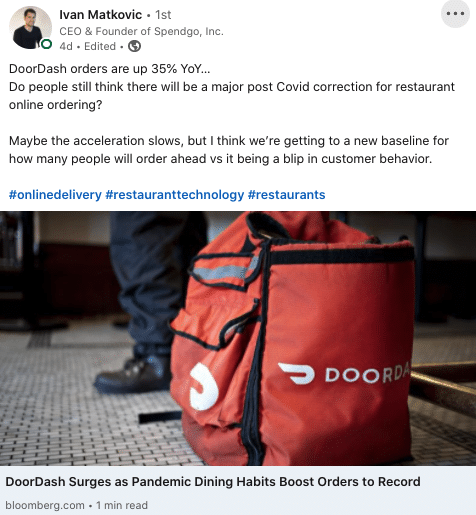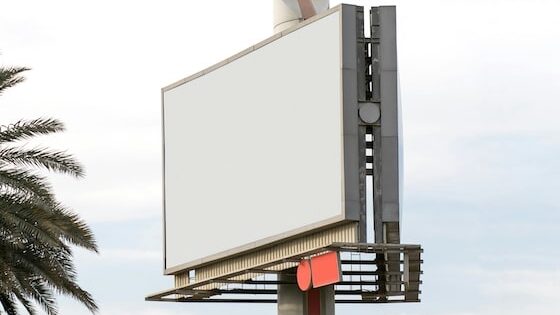Covid may still be visible in our rearview mirrors. But it’s receding rapidly into the horizon (for now at least). Mask mandates are being dropped every day. And even blue states like California are talking about shifting from a pandemic to an endemic public health footing.
So it’s natural to think that this improving environment will be bad for social distancing friendly stocks like DoorDash. But data from the company’s Q4 earnings suggest otherwise.
While the pandemic was alive and well in both quarters, Q4 2020 was in the pre-vaccine era. Meanwhile, by Q4 2021, anyone who wanted a vaccine could get one. Yet online food delivery kept on growing.
For example, the company booked 369 million orders in Q4 2021. That’s a 35% increase from Q4 2020. Gross order value was up 36% for the same period, to $11.2 billion. And revenues were up 34% in Q4 to $1.3 billion.
As DoorDash CFO Prabir Adarkar told Bloomberg, “The benefits of convenience is enduring.”
Xu thinks takeout and delivery have just settled in as a major component of how we consume food. And this place in the food chain (as it were) is increasingly resilient to the winds of change.
“I think we’ve put to rest this question of what happens to demand as diners go back and eat inside restaurants,” Xu said on the latest earnings call.
“I think, clearly, takeout and delivery, as shown by our performance not just in the fourth quarter, but also in 2021, just in an aggregate is that they’re complementary. It’s very possible to eat inside of a restaurant and get delivery because we eat three times or more maybe per day, and that’s over 100 shopping moments per month.”
Slowing GOV Growth
Still, DoorDash is showing signs of maturity since going public in December 2020. The company was founded by eBay and PayPal veteran Tony Xu in 2013.
According to the following chart from Bloomberg, growth in gross order value has declined steadily since Q4 2020. GOV rose 233% in Q4 2020. While it rose 35% in Q4 2021.
DoorDash has a 58% share of the U.S. food delivery market, so sustaining that level of growth is very difficult. The point in the latest numbers is that growth hasn’t settled further, or even declined, in the face of the great reopening.
This appears to show what we expect to see with other sectors accelerated by the pandemic (e.g., contactless payments, eCommerce, work from home, etc.). As Covid recedes, so will the growth rates of many of these segments. But all will settle at levels that far exceed what was seen before Covid rolled in.
DoorDash of course faces some macro challenges. The labor shortage and inflation are clear threats. If great or at least good jobs are there for the picking, why be a Dasher? And inflation threatens to make the already expensive proposition of having a decent restaurant meal delivered to your home court of reach for many families.






